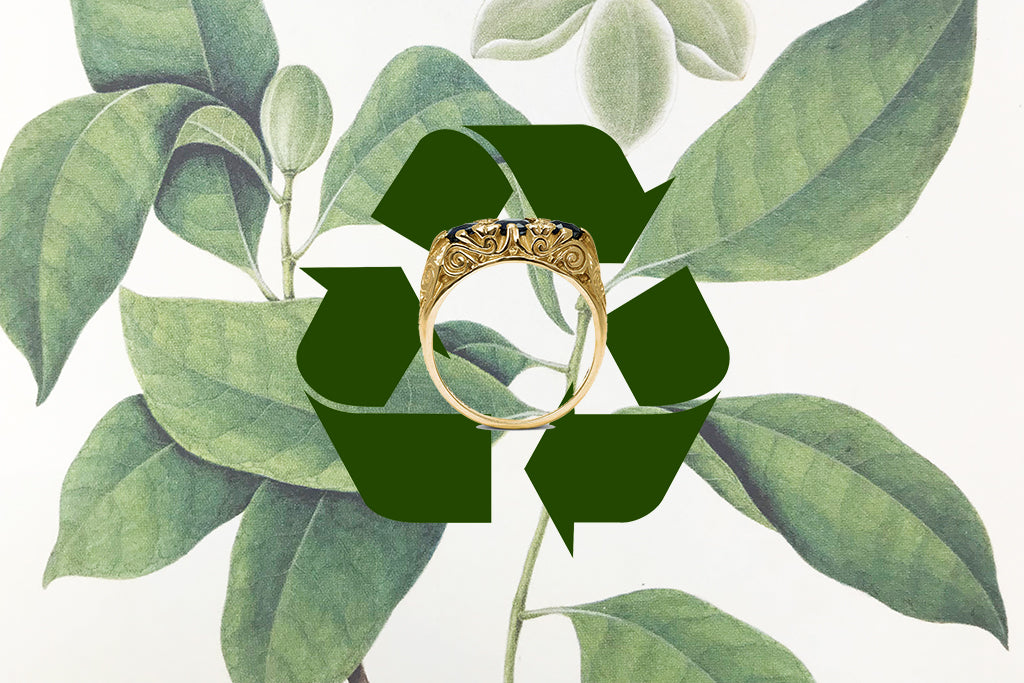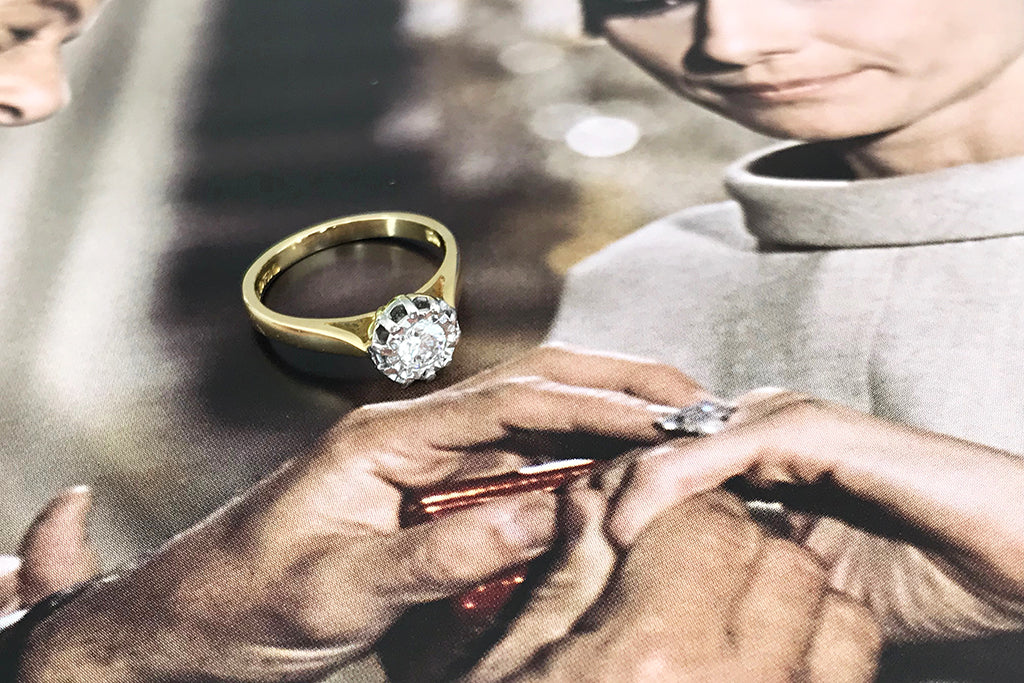
Sustainability is a Hot Topic. Why are Recycled Jewels not Trending?

Not so long ago, rummaging in charity shops was a niche hobby that I, and many of my friends, enthusiastically embraced while we were at university because Topshop was out of our price range. When London's Brick Lane turned hipster, before sustainability became such a pressing concern in the world of fashion, hunting out the vintage shops was one of my favourite ways to spend a Sunday. Back then, I always liked the idea of wearing pre-loved clothes; for financial reasons – buying second-hand is always cheaper than new – but also because whatever I bought was a genuine one-off. Back then, sustainability wasn’t much of a motivator.
GREEN IS THE NEW BLACK

No longer a buzzword, today sustainability has gone mainstream. When fashion's best-known trend forecaster states in The Guardian that in the 2020s we will "care less about perfect clothes than a perfect world" and Joaquin Phoenix declares he will be wearing the same tuxedo for the entire awards season in a bid to reduce waste, you can sense that real change is coming. Whilst Joaquin's gesture may not be entirely relatable, that feeling of guilt that hits you after a fast-fashion fix is. The tide is turning, with sustainability predicted to be one of the biggest drivers of change in the fashion industry in the next decade.
In the wake of the Rana Plaza factory collapse, the appalling conditions endured by workers in sweatshops around the world, the news that Burberry burned £28 million of luxury goods rather than sell at a discount, and the very real fact that buying into fast fashion negatively impacts both our planet and its people, sustainability is a word that the fashion industry is beginning to take very seriously indeed. With the help of global movements like Fashion Revolution, which was founded as a direct response to the Rana Plaza tragedy, and Eco-Age, co-founded by Livia Firth and initiator of the high-profile and highly effective Green Carpet Challenge, consumers are re-evaluating their appetite for fast fashion. Sustainable fashion has never been more fashionable.
However, while leading national newspapers regularly publish articles by leading style commentators like Jess Cartner-Morley about recycling being the sustainable and fashionable choice, and Kate Middleton and Meghan Markle widely applauded in the press for recycling outfits, the same can’t be said for recycling jewellery.
A HIDDEN SPARKLE

Antique jewellery dealers are definitely not shouting about the fact that their wares are 100% sustainable as well as fashionable. The eco-friendliness of buying second-hand gems is being written about rarely, and mainly from the perspective of taking the stones from unwanted heirlooms and having them reset into new jewels. And there is certainly no movement promoting the fashion credentials of previously owned jewels, using sustainability as the hook.
A JEWELLERY REVOLUTION
 We have just entered a new decade and a new dawn in sustainability. The reality is, mining gemstones is bad for the planet, and buying second-hand, pre-loved, recycled – whatever you prefer to call them – stones is not. Just like choosing recycled clothes over new, buying a recycled diamond or coloured stone have a net zero carbon footprint. The planet is not suffering in any way whatsoever from your purchase, which, given the recent news that we may already have hit a climate change tipping point, should make choosing to wear an engagement ring that has been pre-worn the ultimate fashion statement.
We have just entered a new decade and a new dawn in sustainability. The reality is, mining gemstones is bad for the planet, and buying second-hand, pre-loved, recycled – whatever you prefer to call them – stones is not. Just like choosing recycled clothes over new, buying a recycled diamond or coloured stone have a net zero carbon footprint. The planet is not suffering in any way whatsoever from your purchase, which, given the recent news that we may already have hit a climate change tipping point, should make choosing to wear an engagement ring that has been pre-worn the ultimate fashion statement.
It’s time to start a Jewellery Revolution. Will you stand with us? Our world of vintage engagement rings is beautiful on many different levels. Soon, we will be adding The Vintage Ring Company manifesto to our home page, which will outline exactly what we stand for, and what we believe in. Please join us in pledging to recycle more, generate less waste and be kinder to our planet.


